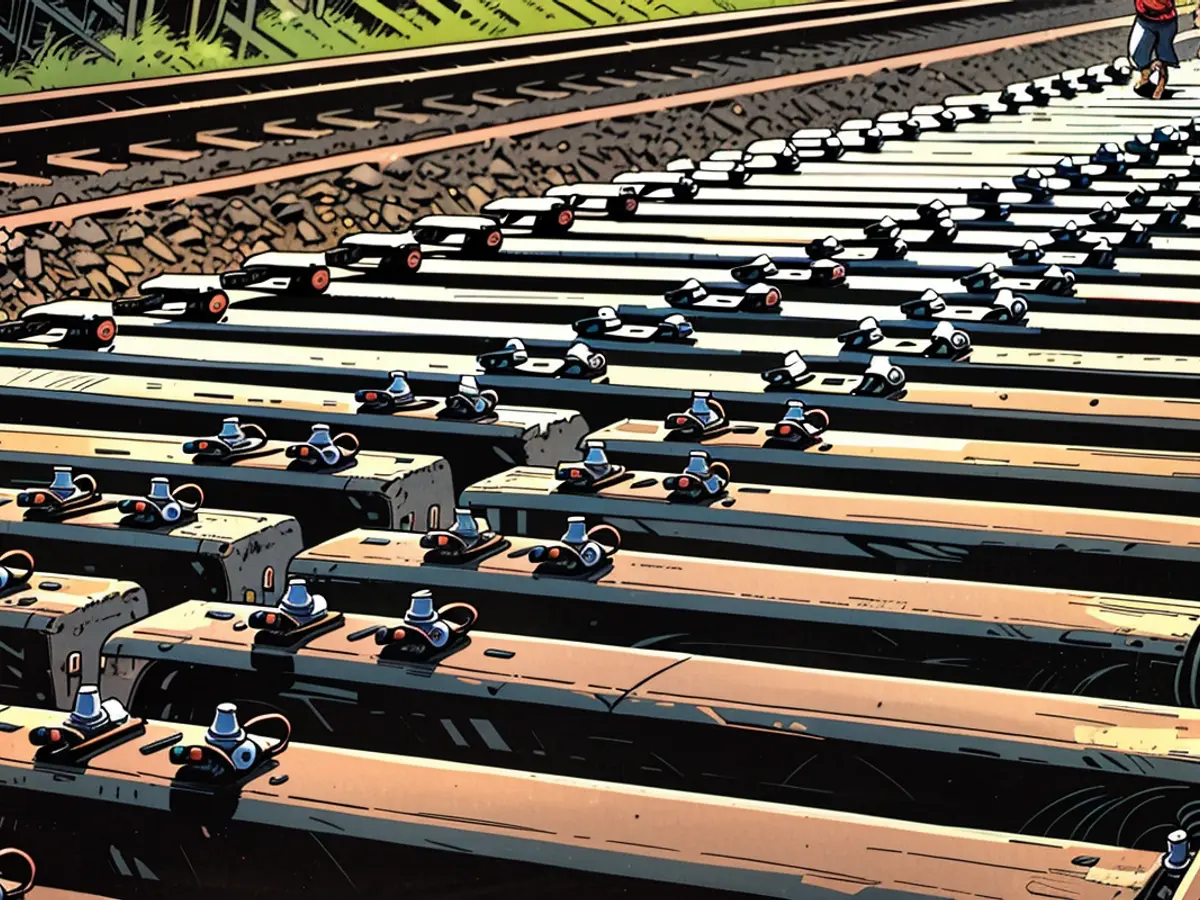Traffic - The railroads need billions - where will the money come from?
How long can people in Germany travel through the country for 49 Euro per month? Financing Minister Christian Lindner has reignited the debate over a price increase for the Germany Ticket in light of urgent railway investments. "Sooner or later, politics must decide whether we want to invest in the rails or if the price of 49 Euro should remain," said the FDP politician to "Welt am Sonntag." Criticism comes from coalition partner SPD.
The price of the Germany Ticket has been a topic of contention for a long time. The federal government and the states subsidize the offer with 1.5 billion euros each per year. There is a price guarantee from the federal government and the states only for this year. The ticket could therefore become more expensive for users starting in 2025.
The passenger association Pro Bahn believes a maximum ten euro more expensive ticket is acceptable: "Politics should not overdo it with the price increase. The ticket should not cost more than 59 Euro next year," said Federal Chairman Detlef Neuß to WDR.
"Unprofitable Ticket" for broken rails?
The SPD is taking a confrontational stance on Lindner's proposal: The Germany Ticket is an "absolute success story," said SPD parliamentary group vice chairman Detlef Müller to the German Press Agency. "A crucial factor in this success is the predictability and price stability of the offer. Both should not be put at risk during budget negotiations."
Union parliamentary group vice chairman Ulrich Lange (CSU) sees his fears confirmed that the funding for "the overly generous nationwide public transportation ticket" will now be lacking in railway infrastructure. "It brings nothing to provide a ticket if the rails are broken and the trains don't run," said the opposition politician.
The railway needs billions
The upcoming major overhaul of the railway requires billions of euros in investments from the cash-strapped federal government. By 2030, the company plans to fundamentally renovate 40 heavily loaded tracks to become more punctual and reliable again. A reduction in funding for the Germany Ticket would therefore only be a drop in the bucket.
Thuringia's Minister-President Bodo Ramelow therefore has other ideas: To sustainably modernize the railway, he demands in "Spiegel": "At least 100 billion euros must be mobilized over ten years to modernize the railway's core." On the question of whether he would demand a special fund like for the Bundeswehr, he said: "That would be my approach, yes. But it should be a solution independent of the federal budget." The mentioned special fund refers to a credit-financed special pot of 100 billion euros, with which the Bundeswehr is to be better equipped in the context of the Ukraine conflict.
Federal Transport Minister Volker Wissing (FDP) had already proposed setting up an infrastructure fund a few months ago, in which financial resources for rail, roads, and waterways would be bundled for several years. Private capital investors should also participate. However, this project has not been implemented yet.
Prices may rise and connections may decrease
Ramelow criticized, in view of unclear financing conditions, an expansion of the rail network that had recently been reported in "Spiegel". Instead of more train traffic, the railway reportedly plans higher ticket prices and fewer connections on less popular routes. According to the state-owned company's statements, the planned track access charges are the main cause, which could significantly increase the cost of operating long-distance trains from 2025 onwards. The railway emphasized, however, that "currently there are no concrete plans to cancel" the aforementioned connections.
- The debate over the price increase of the Germany Ticket in Germany is led by Financing Minister Christian Lindner from Neuss.
- The Germany Ticket, which allows unlimited travel throughout Germany for 49 Euro per month, is subsidized by the federal government and the states with 3 billion euros annually.
- Detlef Neuß, the federal chairman of Pro Bahn, suggests that the maximum price increase for the Germany Ticket should be ten euros, making it 59 Euro.
- The SPD politician Detlef Müller defends the Germany Ticket as an "absolute success story" and believes that the price stability and predictability of the offer should not be compromised.
- Ulrich Lange, the CSU parliamentary group vice chairman, fears that the funding for the nationwide public transportation ticket will lead to a lack of funds for railway infrastructure.
- The railway requires billions of euros in investments for its major overhaul by 2030, which aims to renovate 40 heavily loaded tracks and make them more punctual and reliable.
- Bodo Ramelow, the Minister-President of Thuringia, proposes the mobilization of at least 100 billion euros over ten years to sustainably modernize the railway's core.
- Federal Transport Minister Volker Wissing (FDP) previously proposed setting up an infrastructure fund to bundle financial resources for rail, roads, and waterways, with private capital investors also participating.
- The chairman of German Railways criticizes the plan to charge high track access fees, which could result in higher ticket prices and fewer connections on less popular routes.








